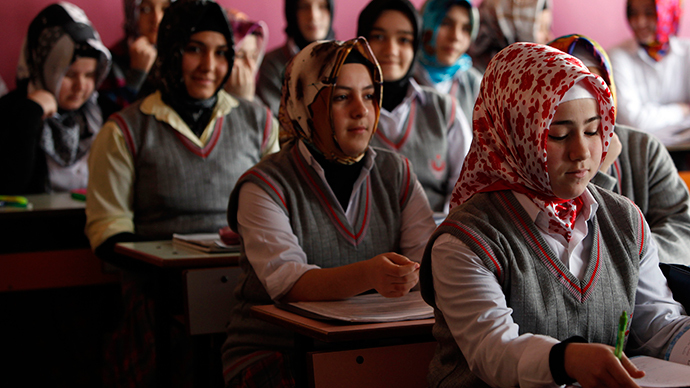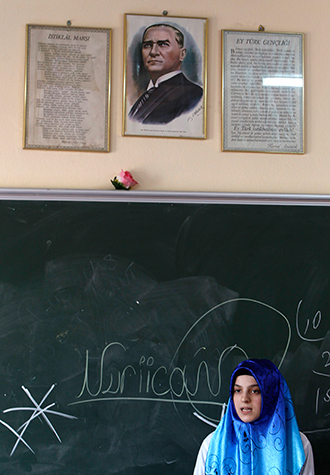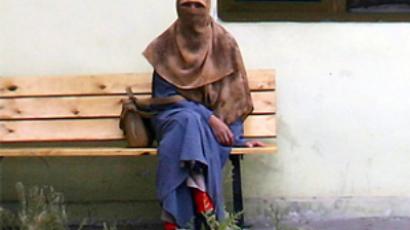Turkey lifts headscarf ban in schools for girls as young as 10

The Turkish government is now allowing girls as young as ten years old to cover their hair while attending school. This amended previous laws that prohibited the wearing of headscarves by students, an act considered to be public expression of faith.
The amended regulation previously stated that "inside school
premises, students must be bareheaded, hair should be clean and
un-dyed, students can not wear makeup nor grow a moustache or
beard."
"Articles of the regulation were changed by removing the
expression 'bareheaded,'" Bulent Arinc, Turkey's deputy
prime minister and government spokesman, said in a press
statement following a cabinet meeting earlier this week.
The amended law applies to the dress code in the country's middle
and high schools - grades five through 12 in Turkey. The change
does not concern primary schools.

The Islamic headscarf or hijab, known as charshaf in Turkey and
several other states in southeast Europe, is worn by devout
female Muslims. Girls start covering their hair after reaching
puberty, in accordance with Islamic tradition.
The ban, which has now been lifted, had been applied in the
country for decades, according to values outlined by the founder
of modern Turkey, Mustafa Kemal Ataturk. These principles were
based on a strict separation between the state and religion.
According to Arinc, the changes were made after long hours of
discussion, but "female students have yearned" for the
end of the ban. He added that the amendment was necessary to meet
the conditions of a series of democratic reforms, announced in
Turkey a year ago.
As part of this plan, a ban on hijabs for state university
students and female civil servants was also previously lifted.
Changes to the latest amendment provoked a heated debate within
the country. While its supporters say religious women have been
returned their fundamental human right, the new law's opponents
take it as a threat to Turkish secularism.
“The Islamic veil has no place in schools,” the head of
the opposition Republican People’s Party (CHP) Kemal Kilicdaroglu
said, as quoted by the Times of Israel. He added that his party
would submit a petition to the constitutional court to have the
move annulled.














